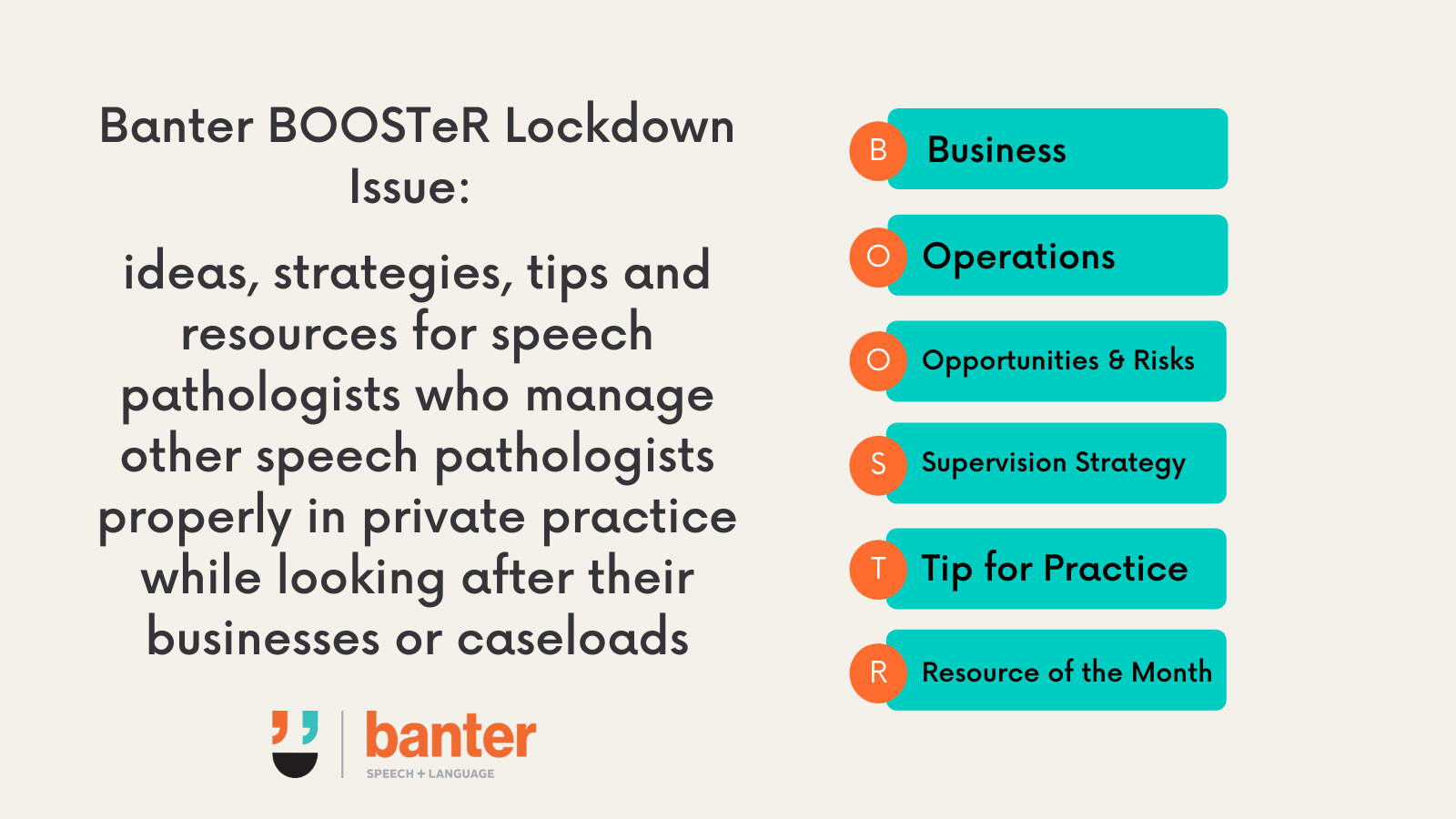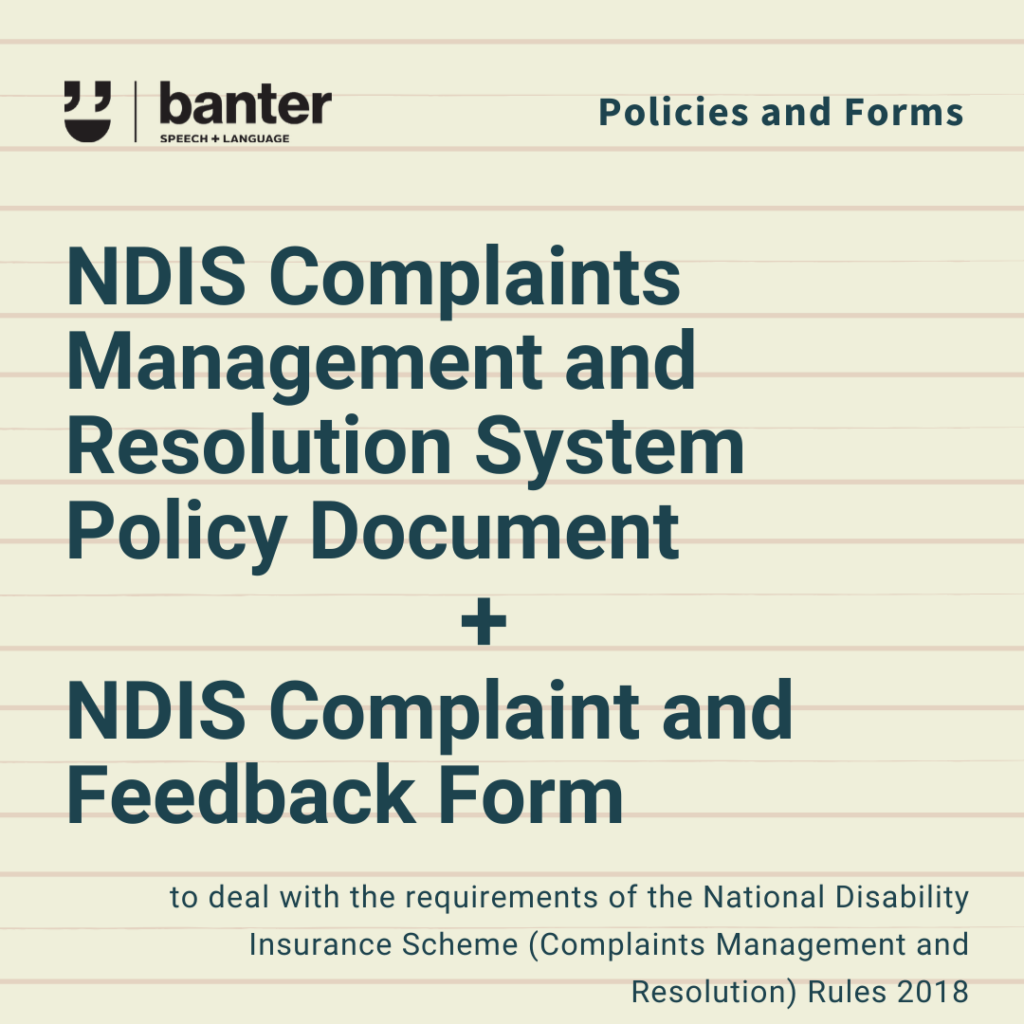Banter BOOSTeR: Ideas, strategies, tips and resources for speech pathologists who manage other speech pathologists properly in private practice
Managing speech pathologists in private practice properly is hard work – especially during a pandemic.
Need a boost?
Welcome to the third issue of Banter BOOSTeR, our free, short newsletter for time-poor speech pathologists who have the tough job of managing other speech pathologists properly in private practice while looking after their businesses and caseloads.
BOOSTeR stands for:

In this month’s BOOSTeR, we share ideas and tools to:
- get better client feedback about your services;
- plan for a return to face-to-face therapy with a mask policy and scripts;
- think about risk properly as we manage the COVID-19 pandemic;
- manage remote teams better;
- reduce feelings of loneliness; and
- manage complaints and feedback more effectively using a Plain English complaints resolution system.
Quick, practical tips and resources from different disciplines that you can use to improve your skills and private practice.
Let’s go!
Business: Five questions you should ask your clients to improve your practice

We all want to get better at private practice. One of the best ways to do it is to ask for feedback from clients and then to act on it.
During lockdown, we’ve found that we don’t get as much direct feedback from our clients because, via telehealth, we get less opportunity for small talk before and after sessions. So we need to ask for it.
As Jon Clark reports in this useful Forbes article, the feedback you get is only as good as the questions you ask. So which questions should we ask our time poor clients? Here are five suggestions, paraphrased from Clark’s advice:
- How did you find out about us?
- Why did you choose us, and not another speech pathologist?
- How would you rank your satisfaction with our service, and why?
- What are your biggest challenges?
- What can we do better to give you more value?
Honest feedback is key. But, if you want to improve, avoid too many questions, jargon, vague and leading questions and, most importantly, act on the feedback you get by making changes to your systems to address it.
Operations: Planning for the resumption of face-to-face services by having a clear mask policy
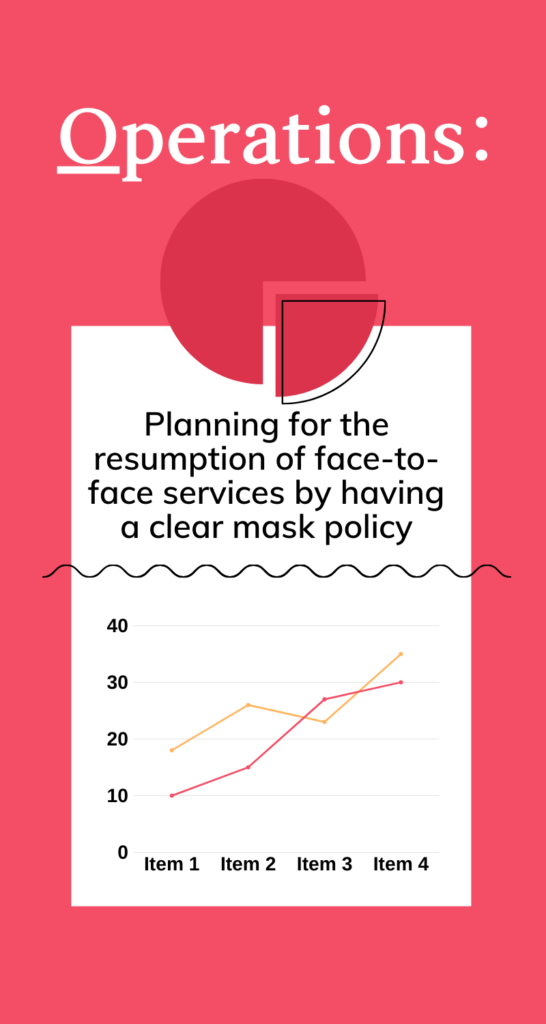
When the lockdown ends – and it will – we need to reopen safely to protect staff, clients and visitors. Amongst other things, we need a mask policy, and we need to be prepared to enforce it fairly and without favour.
Some clients may not agree with our policies, and we need to be prepared to stand our ground and defend them.
So what should we do? Psychologist Vanessa Bohns in the Harvard Business Review, makes these suggestions:
- Be prepared. Have a written policy and a sign on your entrance as a condition of entry. Prepare scripts for staff to use when confronted by a person who does not agree with your policy, refuses to wear a mask, or doesn’t wear a mask properly when required.
- Ask in a way that allows the person to save face. Don‘t make the person feel rejected or morally judged as a ‘bad person’. Explain the policy in human terms, e.g.:
- “We see lots of clients every day, and I don’t want you to get sick.”
- “We work with lots of vulnerable clients who have health challenges, and we need to be careful.”
- “We’re trying to be extra careful because some of our staff have health issues and are at risk.”
- “My manager would kill me if I didn’t follow the mask policy.”
- Be direct: Direct requests are more effective than beating around the bush. Follow up your explanations with a clear, direct request, e.g. “So please put on your mask”.
One additional suggestion: make sure your staff know when to escalate the discussion to management, and remind everyone that, although you welcome feedback, your practice has a Zero Tolerance Policy for abuse.
Opportunities & Risks: Controlling for bias when assessing business risks
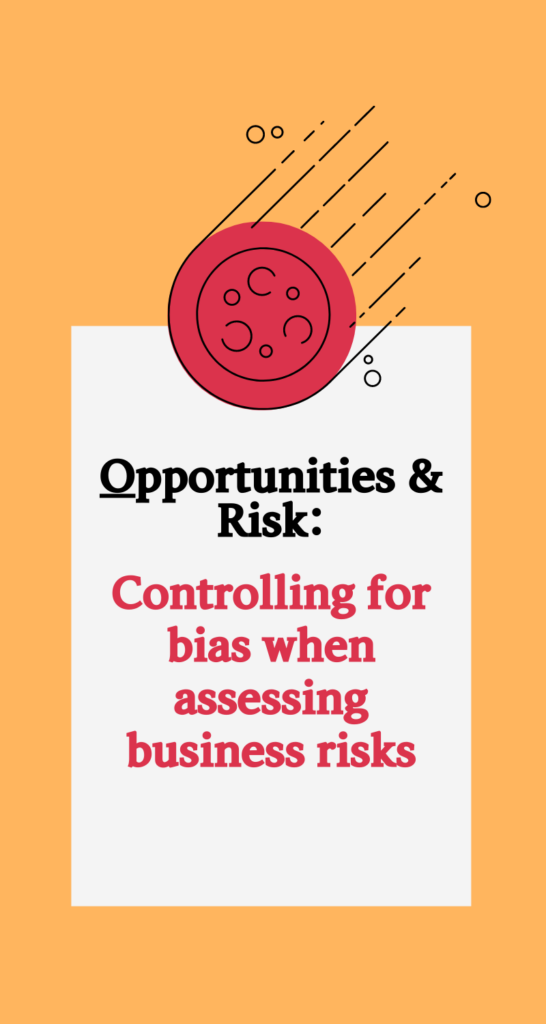
As humans, we do a poor job at handling uncertainty over things we can’t control. So far, 2021 has been riddled with fear, uncertainty and doubt. We’ve all struggled to make choices involving risks, which is a big problem in private practice.
There are some established approaches to help make decisions rationally under risk, including Expected Utility Theory.
Paul Schoemaker, of Wharton’s Mack Institute, reminds us to think about the many ways our risk perceptions are biased when making decisions, including:
- risk aversion in decisions involving gains;
- overweighting low probabilities and underweighting high ones;
- looking at each risk in isolation, rather than adopting a portfolio risk management approach; and
- preferring known risks over ambiguous ones.
If we want to achieve our purpose, and pursue our business strategies, we have to make risky decisions. Reading up on risk management biases and theories can help us to make better decisions, recognising that risk is inevitable in practice – even if we decide to not act.
Supervision: Tips for managing your team remotely
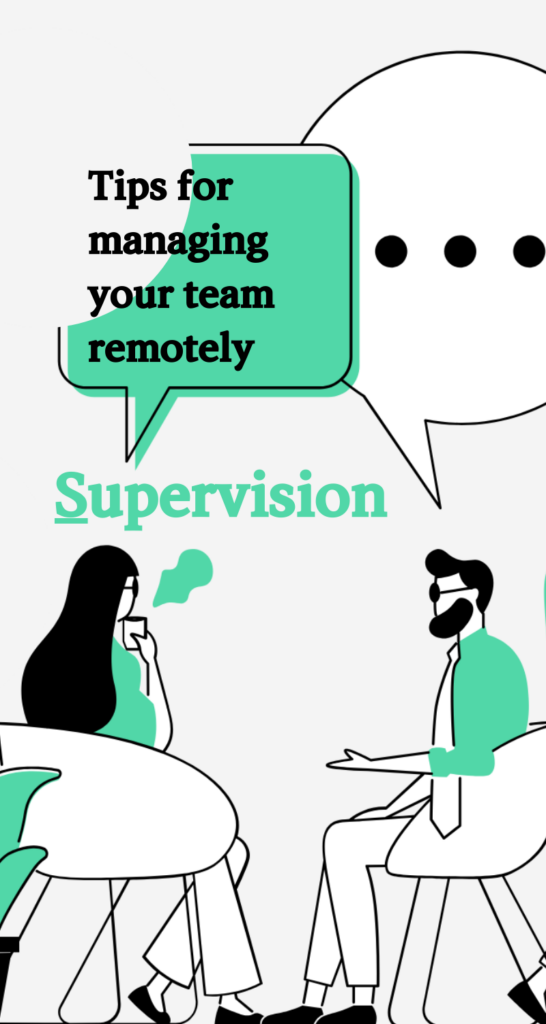
Many of us are managing teams remotely during lockdown. Regardless of your current service delivery model, private practices need a contingency plan for disruptions to face-to-face service delivery. In this context, we all need to think more about managing teams remotely. Paul Yonatan, founder of GetVoIP, has some tips, including:
- creating multiple communication channels and clear rules about how each will be used (we use different channels depending on the type of communication required and privacy and security levels);
- including team chat and collaboration apps (we find these particularly useful for logistics);
- hosting regular video meetings with a written agenda, screen sharing and whiteboard capabilities (we host a short daily Zoom call to enhance teamwork);
- using cloud and mobile phone solutions, including voicemail transcription, voice notes, and texting;
- setting clear expectations and structure for work, including around hours of work;
- weekly one-to-one meetings and check ins to seek feedback on work quality, quantity and satisfaction (we do this in supervision meetings); and
- setting clear goals, and not micromanaging how each staff member achieves them.
Tip for practice: Working from home doesn’t need to be lonely!
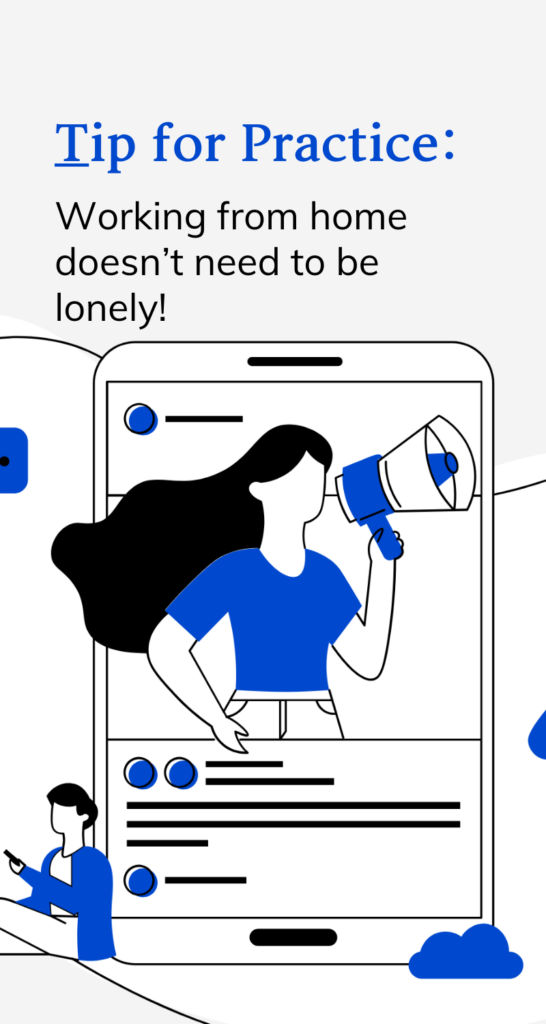
Working from home can be lonely, even when you are seeing clients all day via telehealth. Benjamin Rojas has five tips to combat loneliness:
- Proactively reach out to colleagues and friends, even when you don’t feel like it!
- If permitted, work outside the house once a week, even if it’s just in a backyard, park or even with your head stuck out a window!
- Focus on small, achievable goals: getting things done will improve your mood. Routines help, and, as Elizabeth King says, process can save you from the poverty of your intentions.
- Have a proper lunch break, ideally outside.
- Make plans after work with friends or family, and draw clear lines between work and personal hours.
Resource of the month: Complaints Management Policy
Do you need a new Plain English complaints management and resolution system to help comply with your NDIS, health law, and ethical obligations to clients? If so, we’ve got your back!
Consider yourself boosted!
If you found BOOSTeR useful, please sign up below to receive it each month, or help us spread the word by sharing it with a colleague or on social media!

Hi there, I’m David Kinnane.
Principal Speech Pathologist, Banter Speech & Language
Our talented team of certified practising speech pathologists provide unhurried, personalised and evidence-based speech pathology care to children and adults in the Inner West of Sydney and beyond, both in our clinic and via telehealth.
